The meeting was opened with an introductory speech by the scientific director of the Energy Lab and director of the Centre for Energy and Environmental Technologies, Stanislav Mišák, who thanked all participants for their presence and emphasized the importance of turning the Green Deal into a "Real Deal," which should bring concrete solutions for both the energy sector and society.
"The region expects significant support from us in its transformation from a coal-based region to one that is sustainable and attractive for living. This is the main goal of the key REFRESH project, and through Energy Lab, which is one of the four living labs forming the project's research agenda, we are helping to transform the region's energy sector. We are creating a new energy framework based on low-carbon technologies that support energy self-sufficiency, not only for the Moravian-Silesian region but also for other regions within the Czech Republic and the EU. I am pleased that we held the first joint meeting of the Energy Lab with international participation of excellent scientists, where we can discuss specific research topics within all five research programs. We will continue to meet regularly in this format to monitor progress in the development of technologies and methods, whose implementation in practice is crucial for the region's transformation," said the scientific director of Energy Lab and director of the Centre for Energy and Environmental Technologies, Stanislav Mišák.
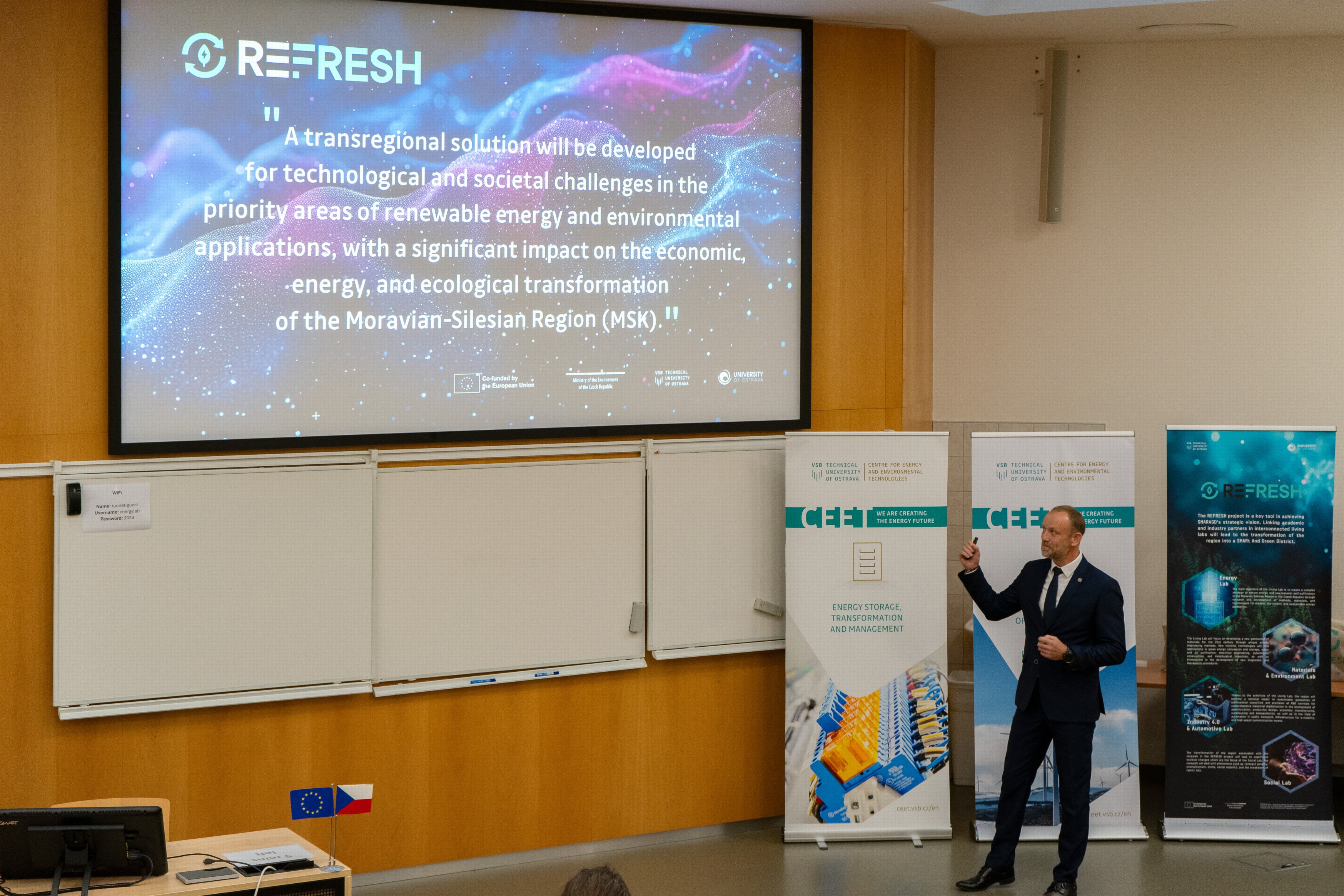
The workshop also included a presentation of the structure of Energy Lab and the specific areas of research that focus on various aspects of the energy transition. Specifically, these included Materials Research for Energy and Environmental Technologies, Research on the Utilization of Secondary Raw Materials and Alternative Energy Sources, Research on Digitalization and Transformation of Energy, Research on Safety and Construction Efficiency of Energy Units, and Research on Environmental and Health Aspects in the Energy Sector.
The introduction was followed by the Scientific Director of the Social Lab Ondřej Slach, emphasized the need to connect technical and social approaches in addressing the upcoming changes, which may impact various areas such as the labor market, migration, and social polarization in the context of the energy transition, not only at the regional but also at the national level. The challenges highlighted included barriers to the development of renewable sources and socio-economic aspects of the acceptance of new technologies.
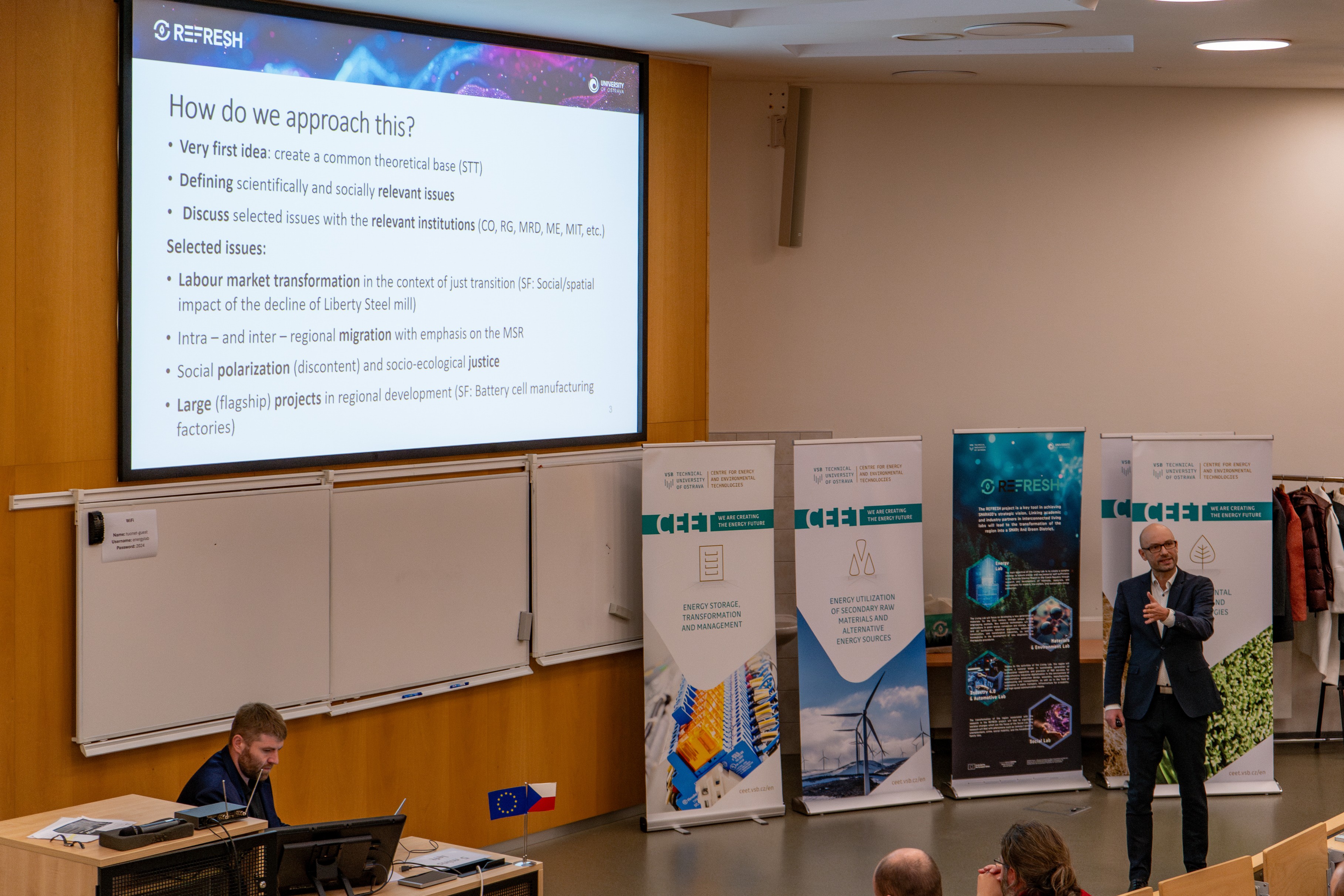
Next, Hanuman Niwrutti Thorat spoke about hydrogen as a key element in the energy mix. He emphasized that the transition to clean technologies, primarily hydrogen-based, is a necessary step to achieve climate goals, including the reduction of carbon dioxide emissions. He described advancements Proton Exchange Membranes and Electrocatalysts for Environment friendly and Cost-effective Electrolyzers. The membranes, developed from materials like Nafion and Polybenzimidazole, exhibit better conductivity, resistance to high temperatures, and mechanical stress. These properties allow them to be applied in various industrial sectors, especially where materials need to withstand demanding conditions.
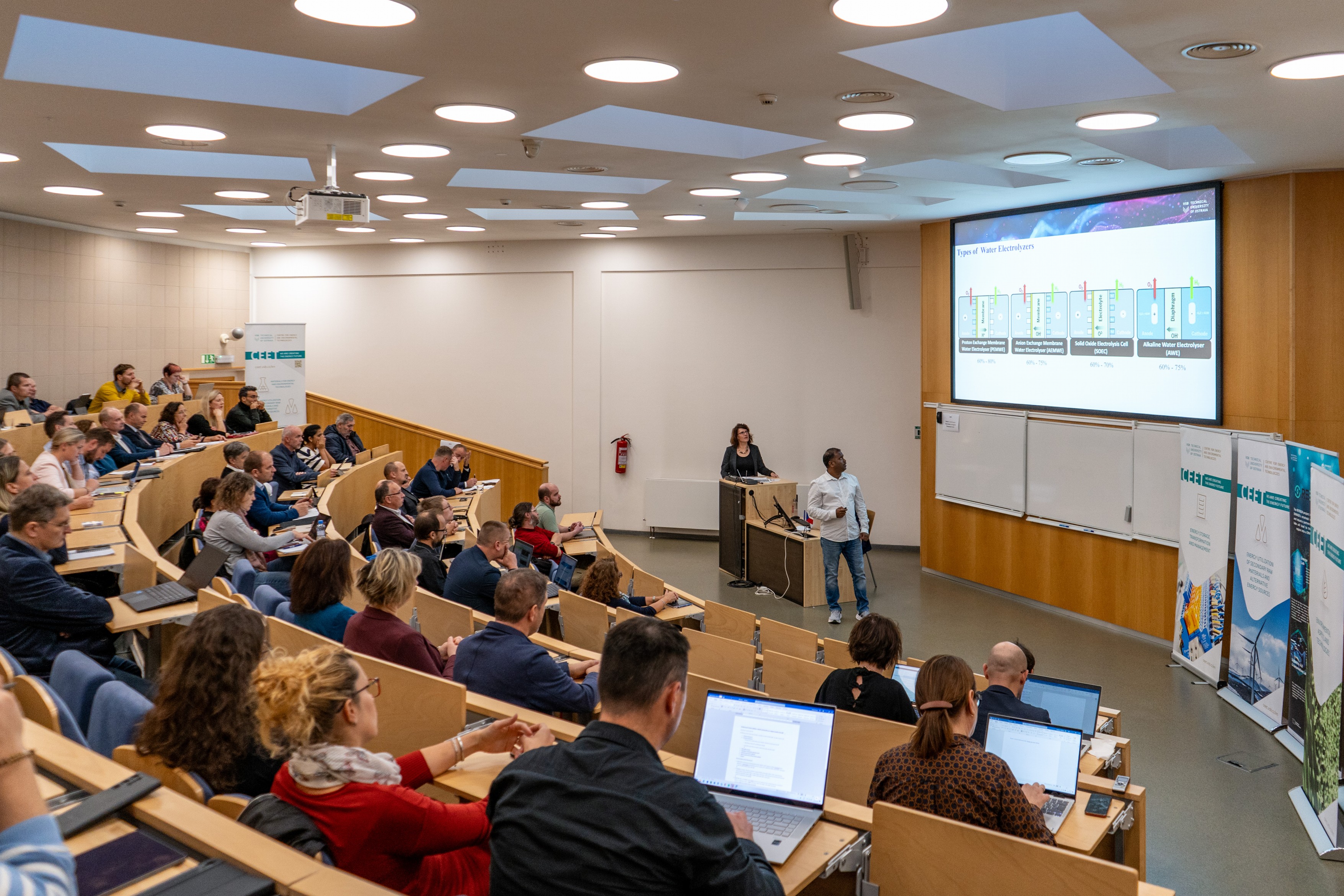
The workshop also provided an opportunity for discussions about other innovative technologies, such as Hydrothermal carbonization in sludge conversion, presented by Witold Kwapiński. This innovative process transforms sludge into useful hydrochar, and the technology helps reduce waste and pollution while producing material that can be utilized as fuel or soil additive. This process contributes to the circular economy and aids in achieving energy neutrality in regional waste processing systems.
"The workshop was excellent. It’s a great idea to bring together people from different fields, which allows us to learn from these diverse areas of research. The exchange of ideas that takes place here often leads to new concepts and innovative solutions to our own challenges," said Witold Kwapiński.
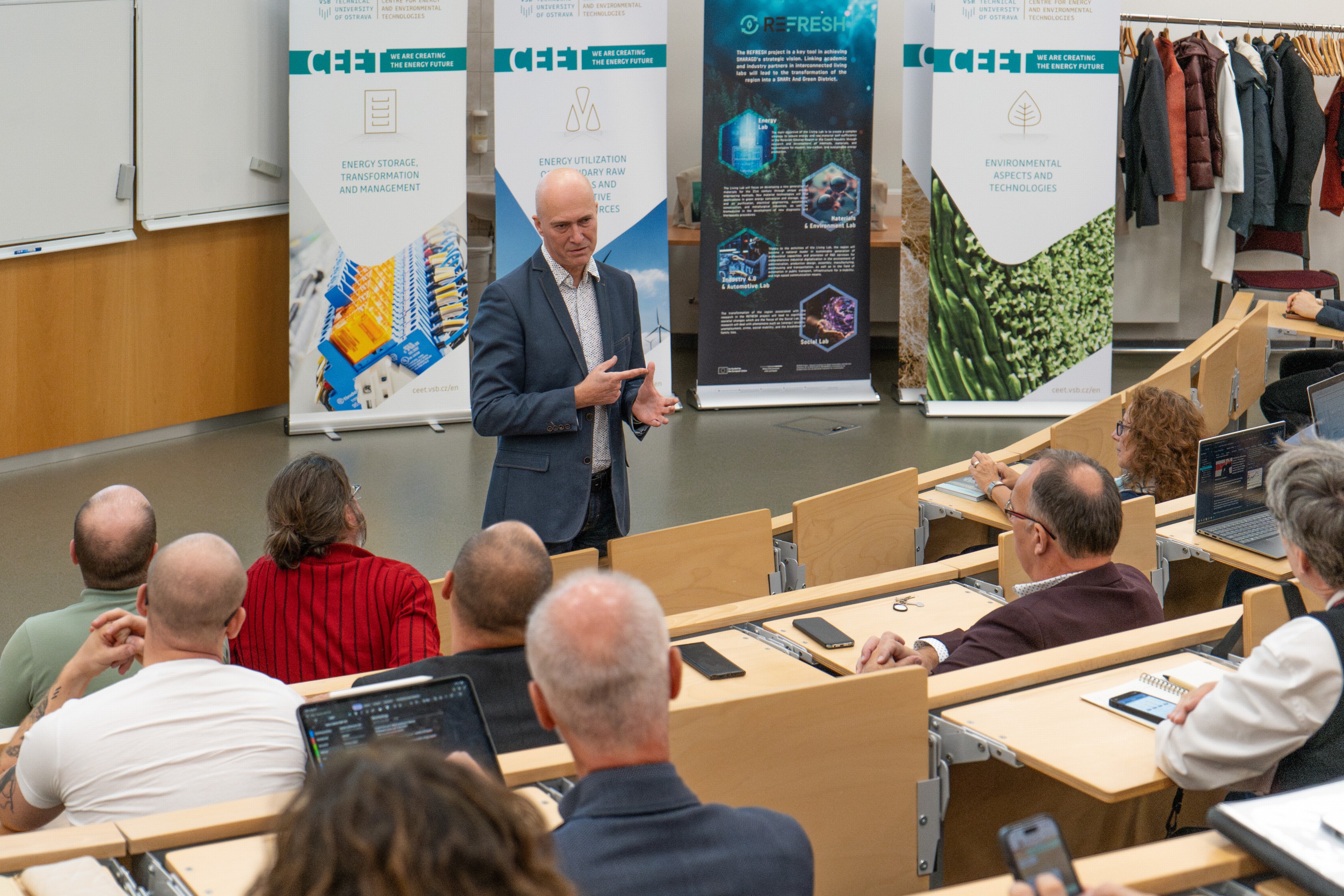
Flah Aymen presented his research on wind energy systems, focusing on specialized designs of electrical machines for renewable energy sources. The dual stator and rotor machines developed by his team enhance the performance of wind turbines and improve their reliability. These designs are scalable and suitable for both small and large wind farms, making them a key element for the future of wind energy.
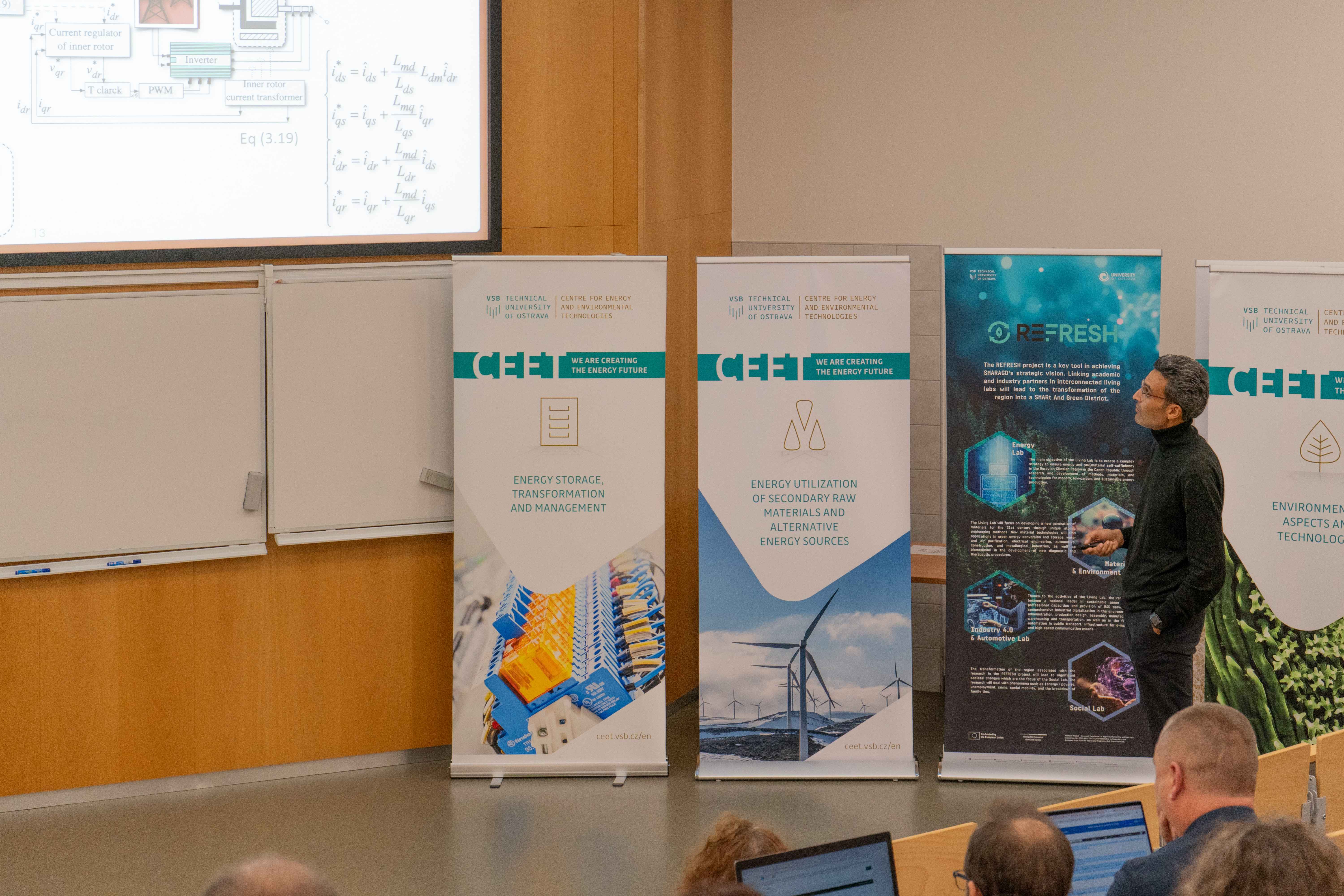
Leonor Calvo presented research focused on the safety of hydrogen technologies as part of the CESAR (Centre of Excellence for Safety Research: Shaping the Future of Safety) project. Her team has developed new standards and safety protocols for working with hydrogen, which are crucial for the safe implementation of hydrogen technologies across various industrial sectors. The CESAR research project aims to help the Moravian-Silesian region become a leader in clean technologies.
„I realize that this workshop is part of the REFRESH project. I am glad that, thanks to our collaboration on topics related to the environment, energy, hydrogen, and similar areas, I could participate in this event. Attending a workshop like this is always beneficial for everyone, as it provides insight into subjects that may be outside one's own scientific field. At these events, you can gain interesting ideas that can ultimately enhance your own research. For me, this is very interesting, and I truly appreciate being invited to participate and learn more about energy, waste, and hydrogen electrolysis," said Leonor Calvo.
Bartosz Romuald Zawadzki presented research on Photocatalytic aktivity of NiO/Vermiculitematerials in hydrogen production. This research demonstrated the potential of these materials for hydrogen production using light and photocatalysts. Hydrogen, a key energy source, can be produced more efficiently and sustainably in this way. The study indicates that various synthetic methods can improve the stability of the catalysts, which has a direct impact on increasing hydrogen production at lower costs.
"I think the workshop was great. It fostered the exchange of ideas and information among participants, which enhanced my overall experience. What was definitely the most beneficial for me was networking. I met specialists from similar but slightly different fields, which helped broaden my perspective. For example, I heard about hydrothermal carbonization, photolysis, electrochemistry, and the safety of hydrogen technologies. Even though these aren't exactly my areas of research, learning about them helps advance our understanding of these technologies," said Bartosz Romuald Zawadzki.
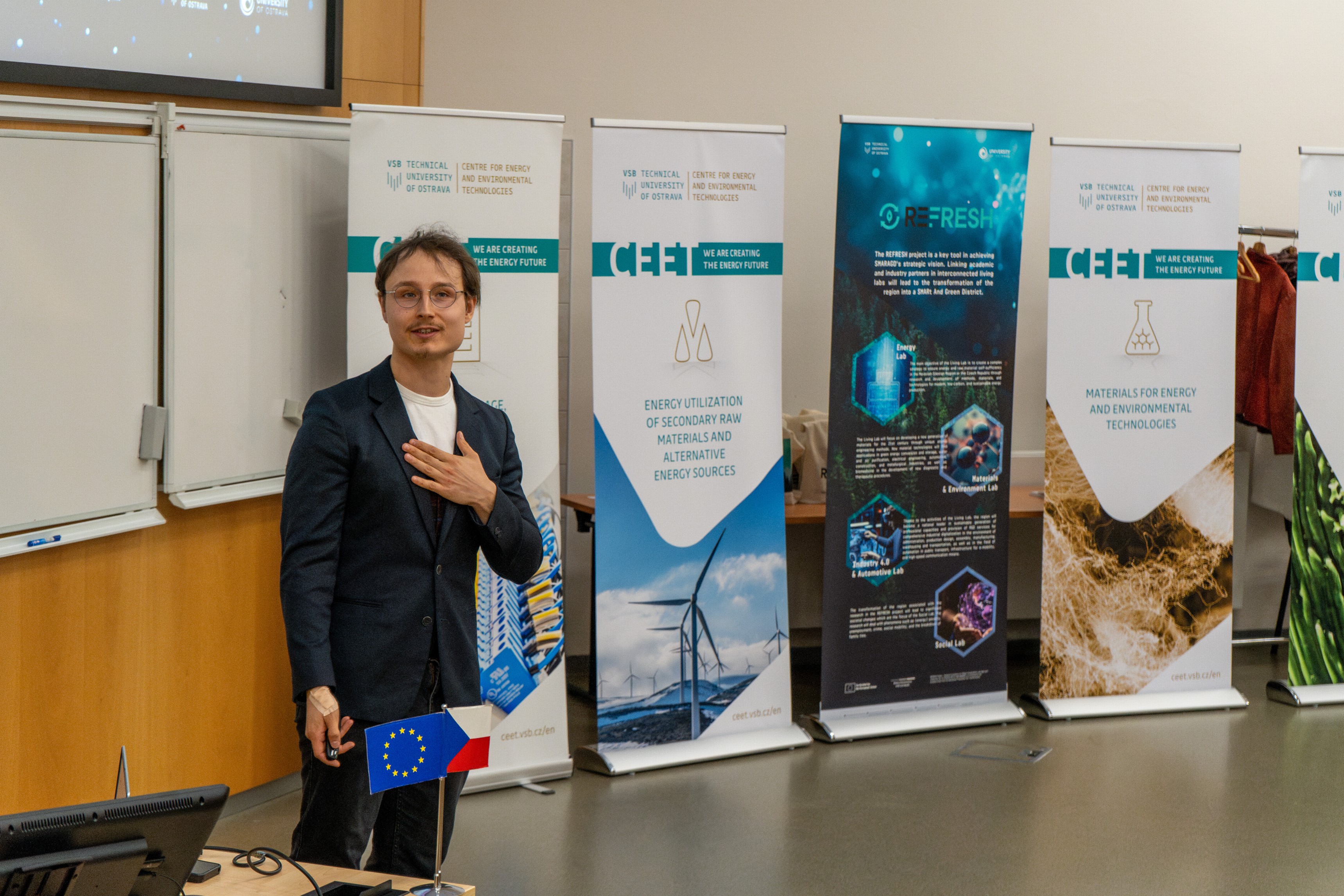
Stanislav Mišák concluded the Energy Lab meeting by summarizing the key ideas and challenges presented throughout the day. He emphasized that REFRESH and Energy Lab represent a unique platform for interdisciplinary collaboration, allowing for the establishment of new connections and the sharing of knowledge among researchers, industry professionals, and political stakeholders.